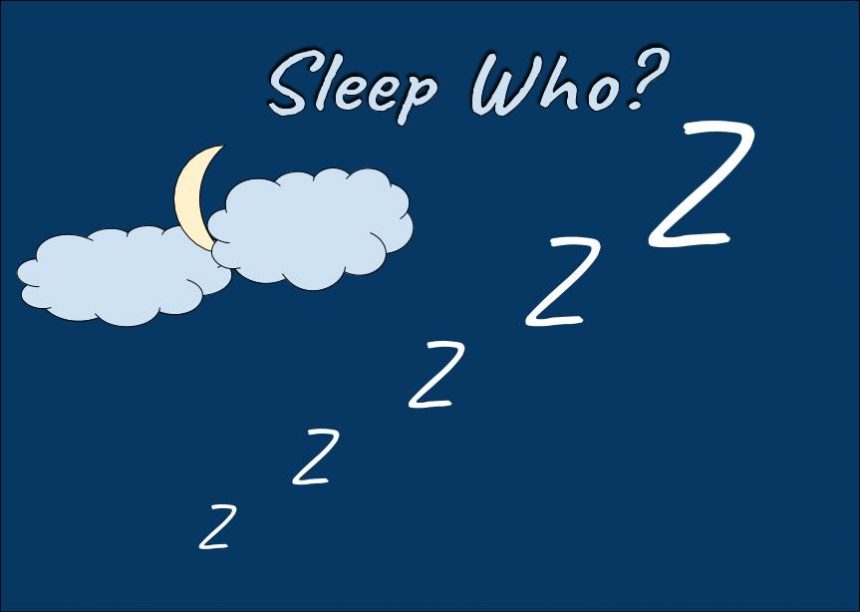Sleep Who?
Everyone sleeps, but does anyone talk about how important it is?
Is the significance of sleep to the body and wellbeing recognized in today’s society?
The average person spends 26 years of their life doing it. It can reduce the risk of heart-attacks, cancer and empties your brain of toxic build-up. It’s a necessary part of human life that is often overlooked. Sleep. People often let their sleep schedule fall between the cracks, but it is essential to life.
An adult requires at least seven to nine hours of sleep each night; however, according to John Hopkins Medicine, teenagers require no less than nine hours and 15 minutes of sleep. Despite that, the average teenager only gets seven and a half hours of sleep or less every night.
Teenagers need more sleep than preteens younger than them and adults older than them because they are cognitively maturing. Their brains are developing and physically growing, which requires sleep to take place. The adolescent “sleep clocks” in their bodies also naturally makes the body want to fall asleep at around 11:00 pm, making it more difficult to fall asleep before then.
Lack of sleep can inflict a multitude of negative implications on the human body. Quite obviously, sleep loss leads to a reduction in alertness. There are nearly 6,000 fatal car crashes each year caused by drowsiness.
Inadequate sleep greatly increases the risk of developing heart disease, higher blood pressure, and stroke.
Ever stayed up late studying for a test and couldn’t learn anything the next day? That is because not enough “Z’s” can actually impair one’s memory.
Sleep loss also has a negative effect on a person’s mental health. Someone who may already have a preexisting mental health condition may struggle even more if they aren’t sleeping enough. Researchers are looking into how sleeping may actually alleviate certain symptoms of a mental health condition.
Not only does sleep loss impair thinking and awareness, but it can also increase the likelihood of coming down with many diseases. Lack of sleep is starting to be associated with weight gain possible making it a risk factor for obesity. Inadequate sleep greatly increases the risk of developing heart disease, higher blood pressure, and stroke.
By not sleeping enough, one may also be missing out on a lot of great benefits. Obviously, sleeping gives a person more energy, but it also clears the brain of toxins that build up while they are awake. Sleep can also improve memory, mood, and the ability to cope with stressful situations
Clearly sleep is a vital part of living a healthy life, but it is even possible for teenagers to achieve a nine-hour sleep goal? First period at NAI starts at 7:23 a.m. and school buses pick students up as early as 6:20 in the morning. If a student got picked up by the bus at 6:30 and they woke up at 6:00 to get ready for school, they would have to go to bed at 8:45 p.m. to get the recommended nine hours and 15 minutes.
Students at North Allegheny are notoriously busy and some school activities like sports and concerts can last longer than 8:45 p.m. The district preaches a healthy life for its students; it has an extensive physical education program and promotes healthier foods in the cafeteria. After considering the impact of sleep on the body one might question whether or not the district is doing enough for a fully healthy life… including sleep.
Ultimately, North Allegheny has considered moving start times back, in the past, however, they did not go through with it. Schools in our area have made the switch to later start times, keeping students’ sleep in mind. For example, this school year Pine Richland moved start times back twenty-five minutes later, North Allegheny has yet to follow.

Matthew Koah is a sophomore at North Allegheny Intermediate. He enjoys extracurriculars such as soccer, Key Club, and is a member of the Boy Scouts of...







